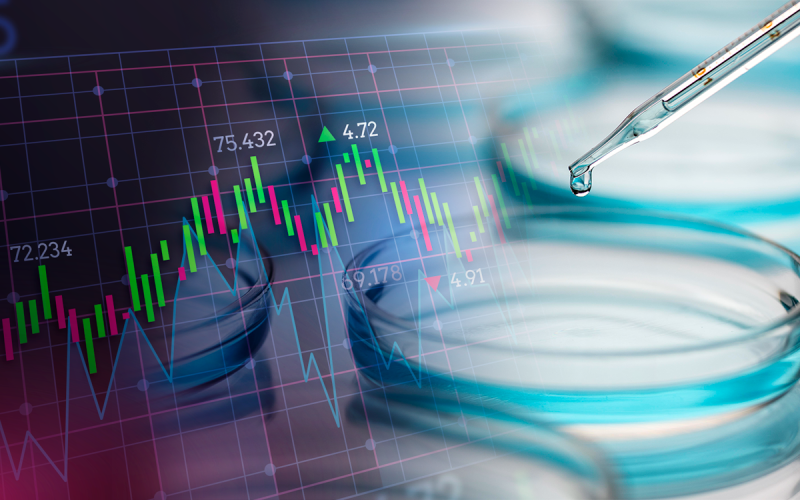
The antibody drug conjugate (ADC) market, called a ‘guided missile that kills cancer cells,’ is expected to grow rapidly, and research and development is being actively conducted. In clinical practice, ADC treatment with high therapeutic efficacy and low side effects is expected to be able to treat diseases with large unmet medical needs, and attention is being paid to the possibility of combination therapy with existing treatments or expansion of new indications.
The Korea Health Industry Development Institute held the ‘2024 Pharmaceutical Bio Industry Innovation Forum’ at the Nine Tree Locaus Hotel in Yongsan, Seoul on the 27th. At this event, domestic and overseas ADC development trends and future prospects, and next-generation platform development trends of major domestic companies were introduced.
ADC is a complex that combines an antibody with a cell-destroying toxic drug (payload) as a conjugate (linker). By delivering the drug to specific target cells, a more accurate and powerful therapeutic effect can be expected compared to existing treatments. The ADC market began to attract attention when Japan’s Daiichi Sankyo’s breast cancer ADC treatment ‘Enhertu’ (ingredient name: trastuzumab deluxtecan) showed blockbuster performance worth trillions of won in just five years since its launch. According to global market research firm Evaluate, the ADC market size has grown tenfold in eight years from approximately $1 billion (approximately KRW 1.4 trillion) in 2015 to approximately $10 billion (approximately KRW 14 trillion) in 2023. It is expected to grow to $28 billion (approximately 39 trillion won) by 2028.
Because the manufacturing process for ADC treatments is complicated, only about 10 drugs have been released to date, but they are playing an active role as a ‘game changer’ in the treatment of various incurable cancers that are difficult to treat and have a poor prognosis. There are more than 150 ADC-related clinical trials currently in progress around the world, and biotech companies specializing in ADC development, such as RigaChem Bio, ABL Bio, Pino Bio, and In2Cell, are continuing to make great progress.
RigaChem Bio possesses the linker-payload platform ‘ConjuALL’, a core technology of ADC. It is designed in a way that reduces the toxicity of the payload so that it can be activated at high concentrations in tumor cells, and is focusing on developing new drugs targeting solid cancer, non-small cell lung cancer, and lymphoma. Previously, the company developed ‘YBL-001’ (LCB67), an ADC anti-cancer candidate targeting ‘DLK1’, and successfully exported the technology to Pyxis Oncology in the United States in 2020. In December last year, it successfully signed a contract worth about $1.7 billion (about 2.37 trillion won) with Johnson & Johnson subsidiary Janssen, proving the value of its technology.
ABL Bio is developing a dual antibody ADC treatment by leveraging its experience in developing the ADC candidate ‘ABL202’ (CS5001) targeting ‘ROR1’ with RigaChem Bio and its expertise in double antibody technology. In the case of double antibody ADC, it is evaluated that it can increase both safety and efficacy by delivering the payload to cancer cells more accurately than single antibody ADC. ABL Bio plans to develop an ADC pipeline based on the dual antibody platform ‘Grabody’ and submit up to three clinical trial protocols (INDs) within next year.
On this day, ABL Bio Vice President (Research Center Director) Won-gyu Yoo said, “To develop an ADC, the antibody, payload, and linker must be well matched, and for this, we are focusing on discovering the optimal combination.” He added, “We are expecting good results in clinical trials. “I hope we can grow beyond antibody-based innovative new drugs in the future,” he said.
Pinobio is working with Celltrion to develop two types of solid cancer ADC candidates (CT-P70·CT-P71). The ADC platform ‘PINOT-ADC’ technology, which Pinobio transferred to Celltrion in the form of a non-exclusive license in 2022, was applied. CT-P70 is a ‘cell growth factor receptor’ (cMET) targeting ADC targeting solid cancers such as non-small cell lung cancer. CT-P71 has bladder cancer as its target indication and targets ‘Nectin-4’. Non-clinical studies are underway for both treatments, and their tumor-suppressing efficacy and safety have been proven.
In2Cell is developing linker platform technology that connects the most core antibodies and drugs in the ADC new drug field. Linker technology is divided into ‘antibody linkage technology’ (front antibody linker) and ‘drug linkage technology’ (back drug linker), and In2Cell specializes in back drug linker, which is more difficult to implement. The back drug linker is a technology that stays safely in the blood until the drug reaches the cancer cells and then is disconnected to selectively kill cancer cells. Until now, Seegene in the U.S. was the only company with general-purpose drug linker technology.
Global contract manufacturing and development (CDMO) companies have also started competing to increase production by using ADC as one of their main pipelines. The fastest one is Samsung BioLogics, which plans to complete construction of the ADC production facility within this year and receive Good Manufacturing Practice (GMP) approval. Samsung BioLogics is currently negotiating orders with several customers and expects to sign a consignment production contract with Global Big Pharma once the ADC plant is fully operational.
Experts predicted that new ADC drugs will change the cancer treatment environment. Nam Do-hyeon, professor of neurosurgery at Samsung Seoul Hospital, said, “When treating patients, we do not use just one anticancer drug, but use several together in combination.” He added, “ADC treatment that can double the effect of existing treatment is the most important modality (treatment approach) in the future.” “I think,” he emphasized.
